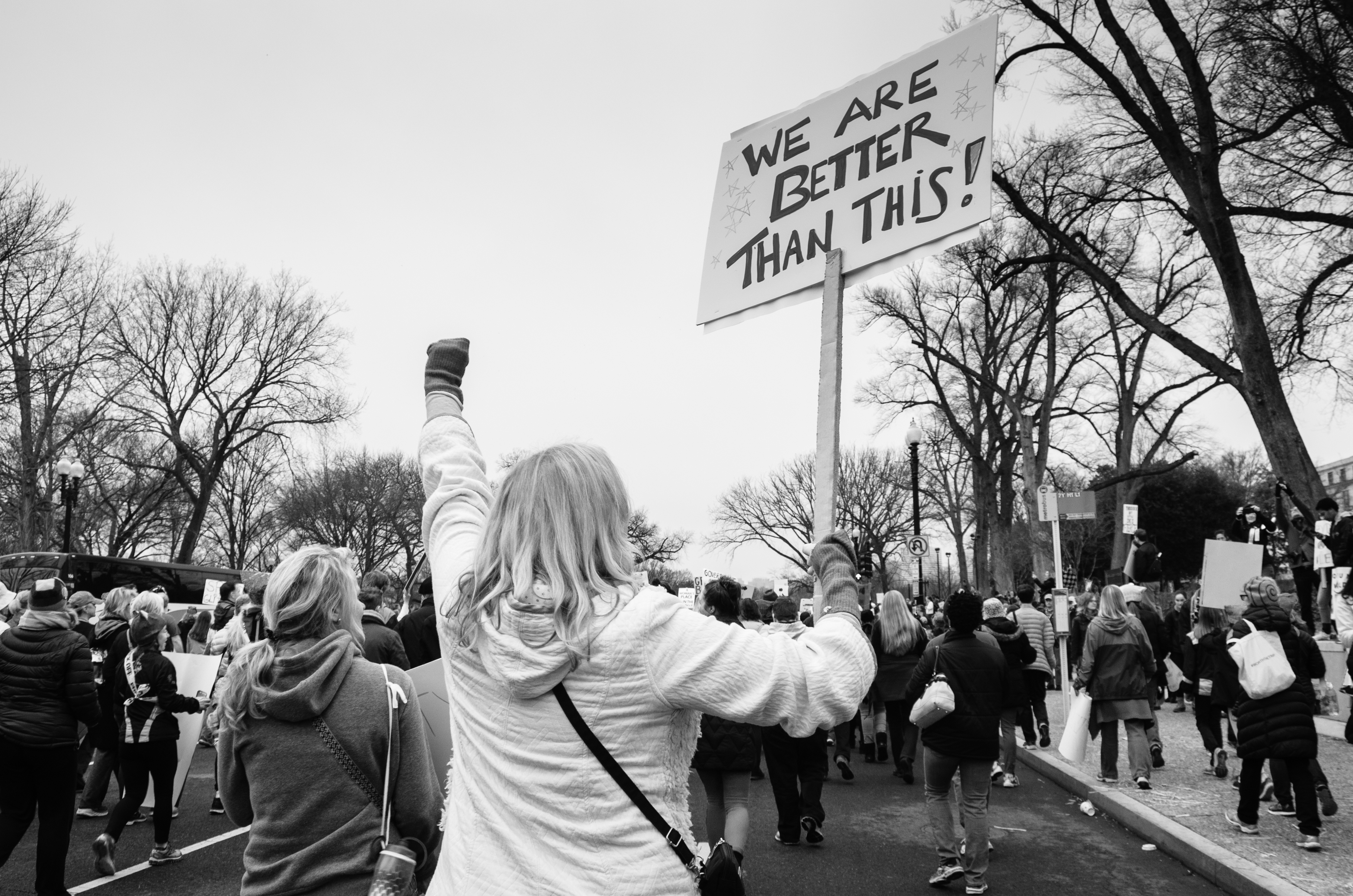Given that data suggests citizenship is in poor condition, I wanted to find some existing ideas on good citizenship. Below, I provide three different visions of what citizenship could and should be. None of these are meant to represent my ideas; I’ll publish those later. Instead, these examples outline some of the amazing efforts of others to encourage good citizenship.
Generation Citizen: Confidence + Habit = Participation
The front banner of Generation Citizen’s website makes its mission clear. It reads: “Generation Citizen believes all students have the right to civics education that prepares them to participate in our democracy.” The organization, according to employee Sydney Menzin, seeks to “build a habit among citizens to be engaged.” The tool to realizing this idea? An action civics curriculum, taught to 5th through 12th graders across the country.

Menzin says habit-forming is key because students need to be confident citizens. One story Menzin told me stood out. At first, students often say that there’s no way they can make a difference. They believe no one important will listen to them. But then volunteers, who are local college students, show videos of previous students’ experiences. These students talk about senators who wrote them back and projects that city governments implemented. After seeing the video, students begin to believe they can make a difference.
Students then spend several months coming up with projects on issues they care about. They reach out to people in the community who are knowledgeable and/or hold influence. After this research, they brainstorm solutions in teams. At the end, they pitch their projects to teams of judges. The main takeaways, Menzin and CEO and founder Scott Warren both say, should be that action matters and that collective action can create change. When students discuss what they learned, Generation Citizen hopes students say that “they realize they can make a difference.”
The Civics Education Initiative: Informed Citizens are Good Citizens
Whereas Generation Citizen sees citizenship in terms of actions, the Civics Education Initiative (CEI) believes knowledge is the key to, or at least the foundation of, good citizenship. The Initiative wants all high school students to pass a basic test of 100 questions from the United States Citizenship Civics Test. The thinking is that if immigrants must know about America to become citizens, people born in America must know their country, too. The end goal is that students’ “civic awareness” increases.
The content students are supposed to know falls under two broad categories, civics and history. Within the civics category, students need to know about the “Principles of American Democracy,” “Systems of Government,” and “Rights in Responsibilities.” The specific questions range from asking students about the three branches of government to naming a responsibility of U.S. Citizens. If everyone has knowledge of the system and their place in it, civic life will be easier for individuals and more cohesive for our country.
When I took the test, I was curious whether shared knowledge might lead to something just as important. Perhaps shared knowledge leads to a shared vocabulary for public life. In other words, I think perhaps that knowing what the Bill of Rights says might allow us all to understand what a right is. From this understanding, we could all talk about rights with different people from different places accordingly.
The Campaign for the Civic Mission of Schools: Knowledge, Skills, Disposition
In its report, “The Guardian of the Democracy,” the Campaign calls for holistic citizenship. The Campaign’s idea focuses on both character and content. The report’s introduction declares that students need a “basic knowledge” of government. But knowledge isn’t enough. Students also need certain skills and dispositions to be good citizens.
Personally, I think this broad idea of citizenship is exciting. The report has many goals for students. Students should be “informed and thoughtful.” They should also “participate in their communities” (e.g. volunteering) and “act politically” (e.g. voting or protesting). Finally, students should strive to possess “moral and civic virtues” such as toleration.
The report made me realize that different parts of democratic life probably demand different aspects of citizenship. Being informed and thoughtful is key for “civic discourse,” while acting politically is crucial for holding government accountable.
My Take on These Ideas:
Just as democracy has formal and informal institutions, I’ve so far found that citizenship has formal and informal duties. Voting and jury duty might be the most obvious responsibilities of citizenship. However, action can come in many forms, such as calling an official or volunteering. To that end, it seems that the ways we talk and listen to each other are as important as action.
In my research into these organizations, I found three things I need to keep in mind as I travel.
First, I should pay particular attention to people’s civic vocabulary. Every person will have their own words and phrases to describe civic life and their role in it. My job will be to figure out when people are using different words to describe similar ideas.
Second, I will probe people’s thoughts on formal and informal aspects of citizenship. Do they think voting is most important? Or maybe speaking kindly to neighbors is? Is volunteering time the key to good citizenship? Or is talking to people with different opinions more important? Or do people think citizenship is a combination of all these things?
Third, I am curious to see how different generations think about civic life differently. All the organizations above focus on young people. I am curious to see, then, if young people’s ideas align more closely with these organization’s than older people’s do.
One Comment, RSS